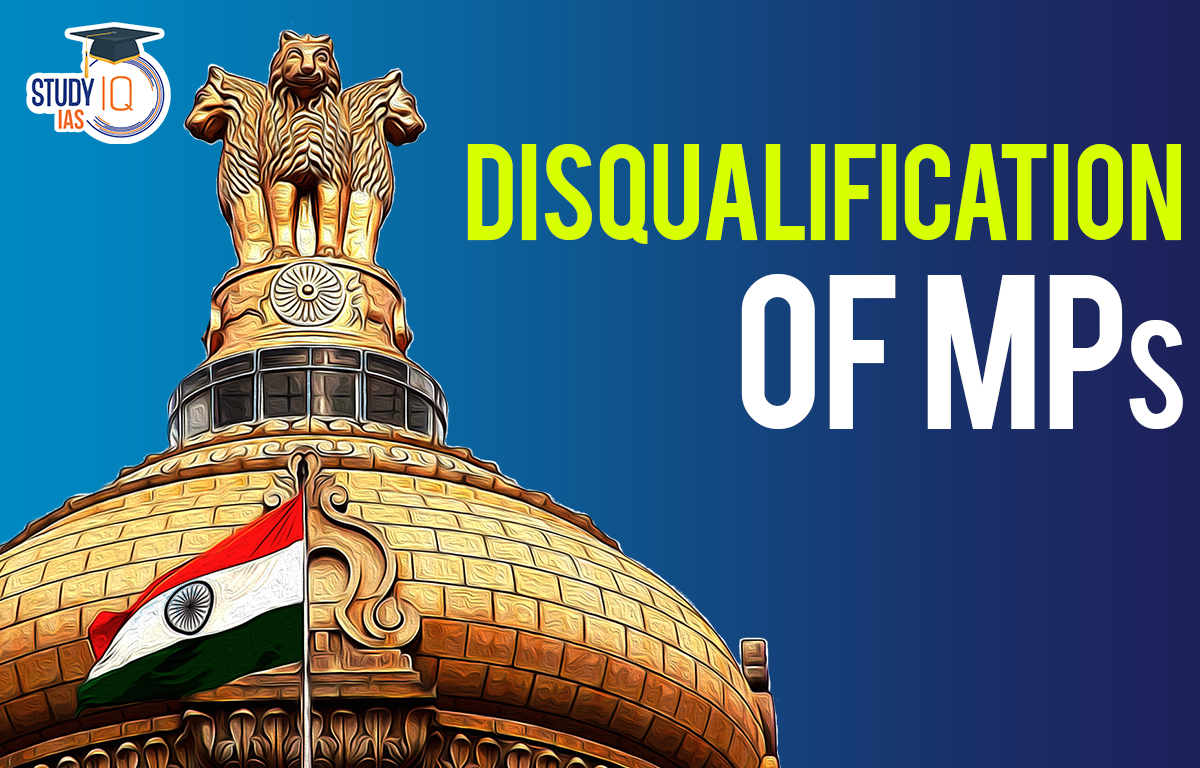Table of Contents
Context: Recently, an eminent politician has been sentenced to two years jail which shall lead to his disqualification as a Member of Parliament (MP).
Constitutional Provisions for Disqualification
- Articles 102 & 191: Basic disqualification criteria for an MP are laid down in Article 102 of the Constitution and for an MLA in Article 191.
- Article 102 authorizes Parliament to make law determining conditions of disqualifications.
- Grounds for disqualification under Constitution:
- Holding an office of profit under the Government of India or State Government
- Being of unsound mind
- Being an undischarged insolvent
- Not being an Indian citizen or for acquiring citizenship of another country.
- Tenth Schedule: Commonly known as the ‘anti-defection law’, it was meant to arrest the practice of legislators from changing political affiliations during their term in office.
- A member incurs disqualification under the defection law:
- If he voluntarily gives up the membership of the political party on whose ticket he is elected to the House;
- If he votes or abstains from voting in the House contrary to any direction given by his political party;
- If any independently elected member joins any political party; and
- If any nominated member joins any political party after the expiry of six months.
- Authority: The question of disqualification under the Tenth Schedule is decided by the Chairman in the case of Rajya Sabha and Speaker in the case of Lok Sabha.
- The present law does not specify a time-period for the Presiding Officer to decide on a disqualification plea. The decision of the Chairman/Speaker in this regard is subject to judicial review.
- Exceptions in Anti-Defection Law: The law enables a party to merge with another party if at least two-thirds of the legislators of the party are in favour of such a merger.
- A member incurs disqualification under the defection law:
The Representation of the People Act (RPA), 1951
- Section 8(1): This includes specific offences such as promoting enmity between two groups, bribery, and undue influence or personation at an election.
- A person will be disqualified if convicted and sentenced to imprisonment for not less than two years.
- The person is disqualified for the period of imprisonment and a further six years.
- Section 9: It deals with disqualification for dismissal for corruption or disloyalty, and for entering into government contracts while being a lawmaker.
- Section 10: It deals with disqualification for failure to lodge an account of election expenses.
- Section 11: It deals with disqualification for corrupt practices.
Legal Protection for Legislators against Disqualification
- Under Section 8(4) of the RPA, legislators could avoid immediate disqualification until 2013.
- The provision said that with respect to a Member of Parliament or a State legislator the disqualification will not take effect for three months.
- If within that period, the convicted legislator files an appeal or revision application, it will not take effect until the disposal of the appeal or application.
- In Lily Thomas vs. Union of India, the Supreme Court struck down clause (4) as unconstitutional, thus removing the protection enjoyed by lawmakers.
Can the Disqualification be Removed?
- Supreme Court: The Supreme Court has the power to stay not only the sentence, but also the conviction of a person.
- In some rare cases, conviction has been stayed to enable the appellant to contest an election.
- However, the SC has made it clear that such a stay should be very rare and for special reasons.
- Section 11 of RPA: Under Section 11 of the Act, the Election Commission may record reasons and either remove, or reduce the period of a person’s disqualification.
- The EC exercised this power for Sikkim Chief Minister P.S. Tamang, who served a one-year sentence for corruption, and reduced his disqualification so as to contest a by-election and remain in office.


 Daily Quiz 17 April 2025
Daily Quiz 17 April 2025
 Nilgiri Biosphere Reserve, Map, Climate,...
Nilgiri Biosphere Reserve, Map, Climate,...
 Complete List of Indian State Animals
Complete List of Indian State Animals





















